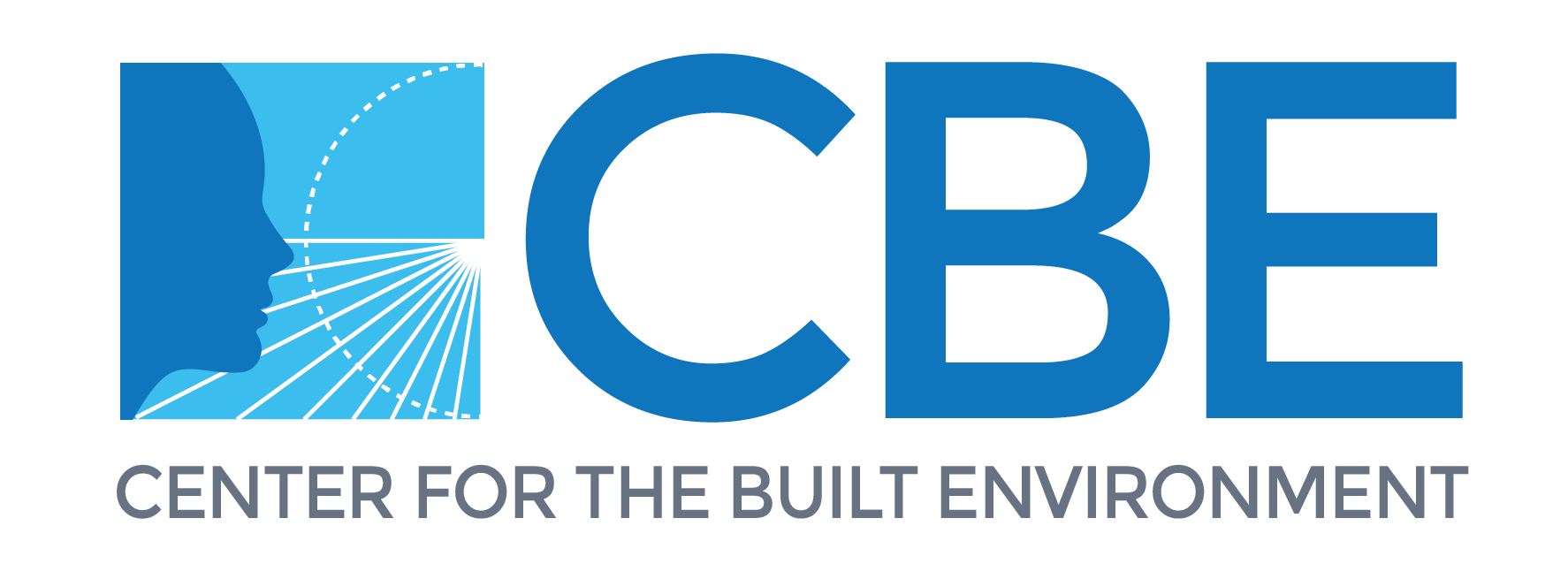Please visit the individual pages below to view videos and slide decks from these events.

CBE Research on Advanced HVAC Technologies at 2026 ASHRAE Winter Conference
February 3, 2026
CBE invites attendees of the ASHRAE winter meeting to join presentations by our research staff, graduate students and CBE consortium members, taking place in person in Las Vegas, January 31 – February 4, plus additional virtual events. Our presentations feature advanced simulations and field studies in real buildings, testing emerging HVAC strategies and technologies.

Emerging AI Tools for Advancing Building Design and Operations
December 10, 2025
As buildings account for a significant portion of global energy consumption and carbon emissions, emerging AI tools offer new methods to drive sustainability and efficiency. Experts from professional practice, software development and academia showcased cutting-edge approaches for optimizing spatial configurations, improving energy efficiency and enhancing building performance. Examples showed how AI-driven design tools can transform design processes, architectural geometries and operational analytics.

Circularity as the Next Phase for Sustainable Buildings
November 13, 2025
Circular economy principles represent the latest phase of sustainable building design, moving beyond efficiency to focus on full material lifecycles. By designing for reuse, repair, and recycling, buildings shift from a linear “build–use–demolish” model to one that keeps resources in circulation and supports the health and welfare of building users and other stakeholder communities. This online symposium features circularity experts with diverse areas of expertise, representing a cross section of the building industry, from architecture, engineering, building portfolio management and academia.
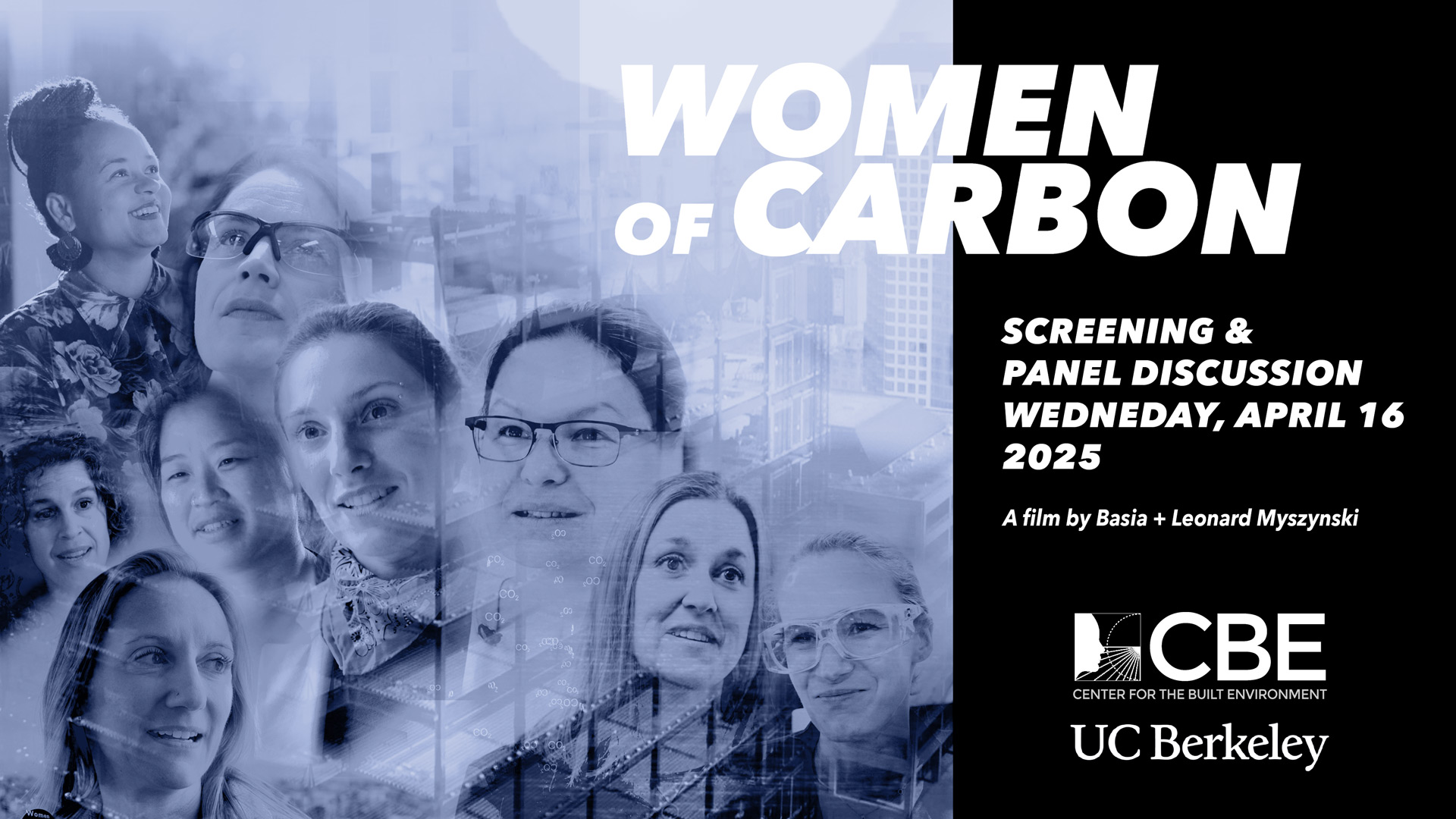
‘Women of Carbon’ Screening and Panel Discussion
April 16, 2025
Join us for a screening of a documentary on women transforming construction while combating climate change. These visionary women are on a quest to inspire change for a sustainable planet through a comprehensive examination of low-carbon building materials and technologies — ranging from algae-based alternative cement and electrified manufacturing to mass timber and greener steel. The event will warm up with a happy hour, followed by the film screening and a panel discussion with female leaders featured in the film and others.
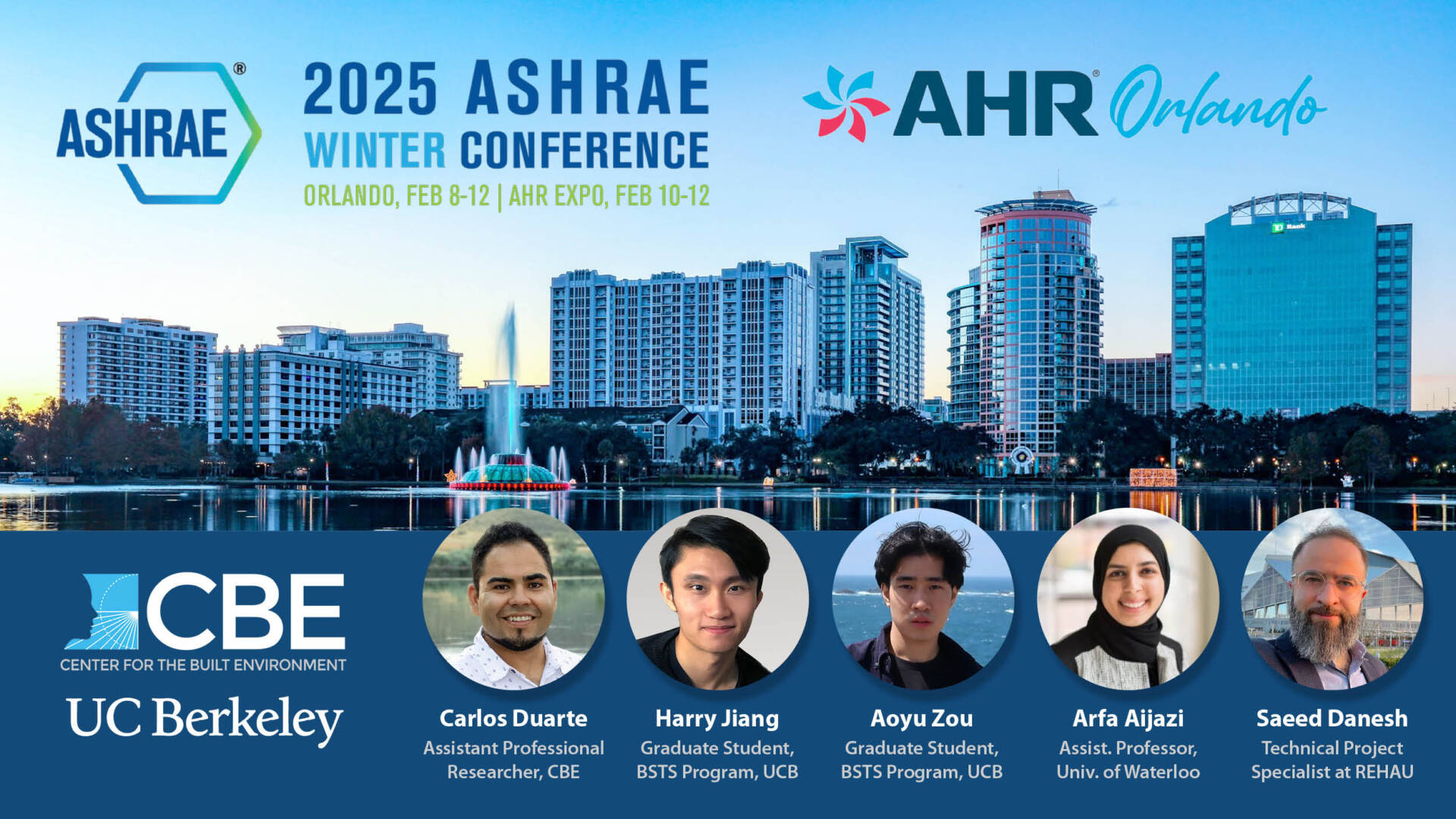
CBE Research Featured at 2025 ASHRAE Winter Conference and AHR Orlando
February 13, 2025
Recent key findings on CBE’s research on HVAC systems, resilience and comfort were featured in numerous presentations by researchers, graduate students and CBE Industry Partners at the ASHRAE Annual Winter Conference and AHR Expo in Orlando. In this post we include links to abstracts and details for people attending, plus links to papers and publications for people seeking more details. Read more >
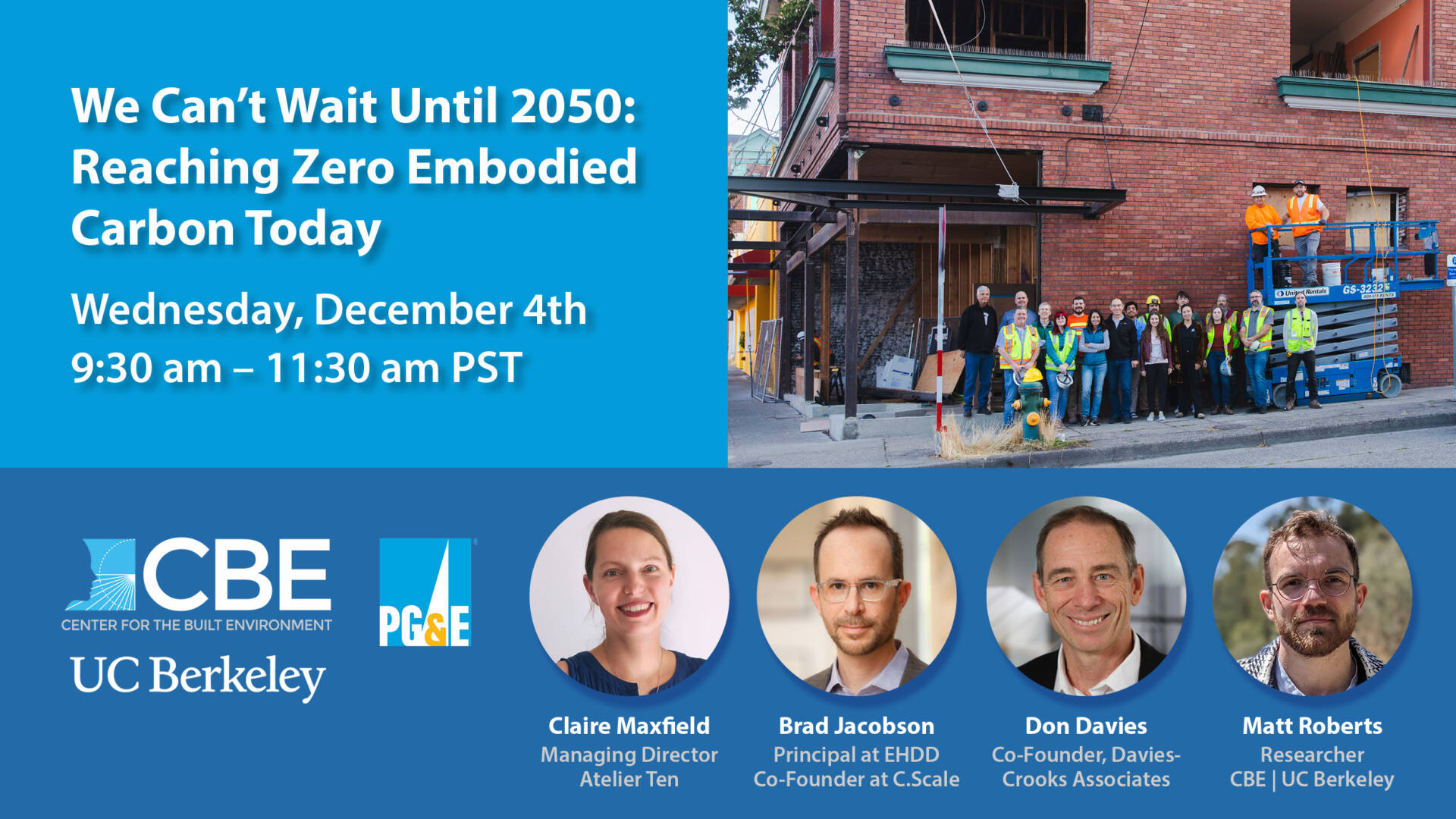
We Can’t Wait Until 2050: Reaching Zero Embodied Carbon Today
December 4, 2024
A stable climate demands that buildings radically reduce their carbon footprint and move toward carbon neutrality by 2050. Electrification, advancements in efficient decarbonized building systems and acceleration towards a clean grid put zero operational carbon within sight. This session described legitimate pathways toward radical embodied carbon reduction available now, and explored sources of carbon emissions that must be tackled to bring us to a fully zero-emission built environment.
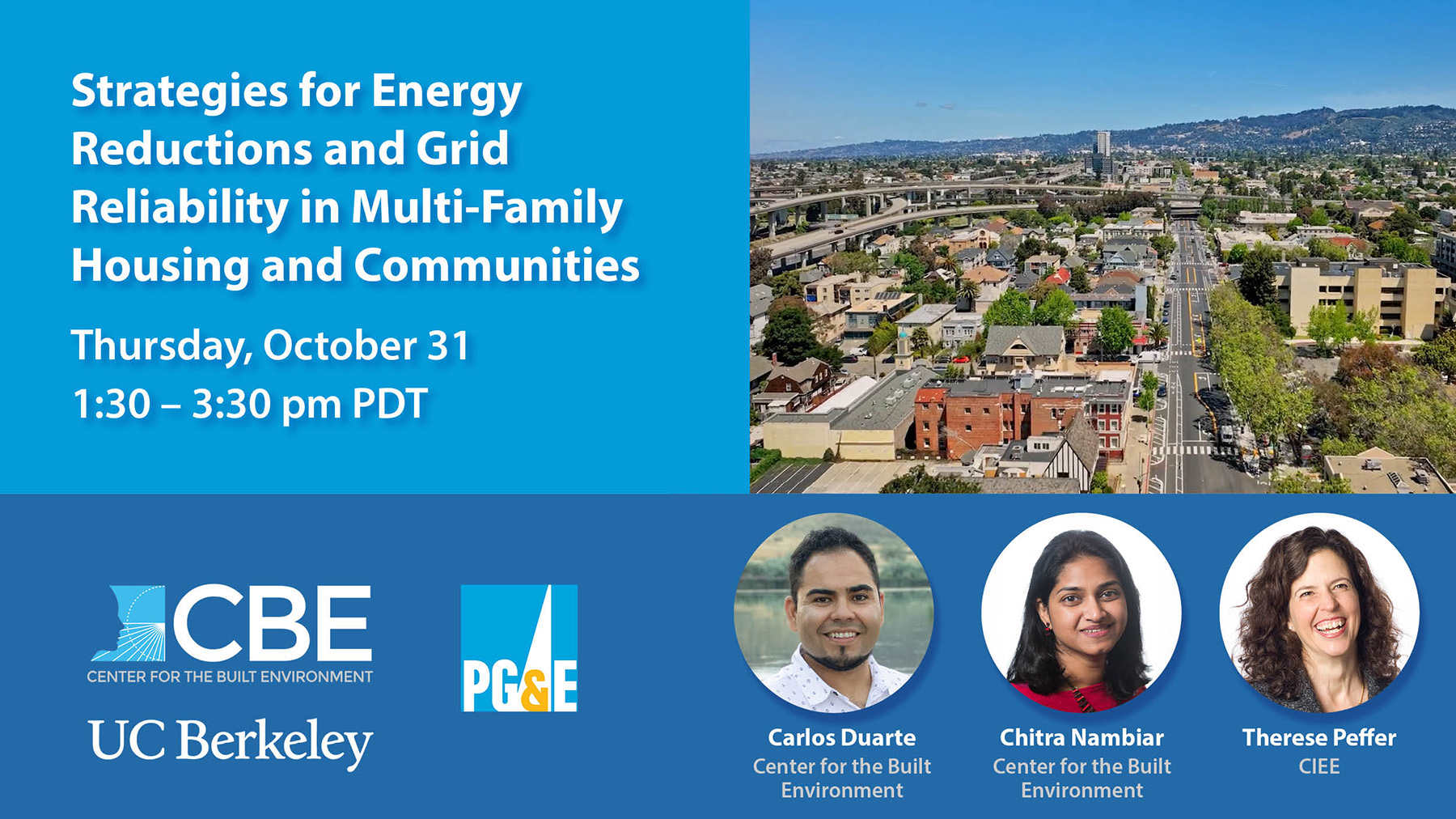
Strategies for Energy Reductions and Grid Reliability in Multi-Family Housing and Communities
October 31, 2024
This session explored cutting-edge approaches to improving energy efficiency and grid reliability as well as other sustainability measures under development by UC Berkeley researchers. Our panel of experts presented case studies illustrating strategies for retrofitting urban environments with resource-efficient technologies, leveraging residential demand flexibility, and new prototypes that enable affordable mixed-use buildings to meet ambitious energy goals.
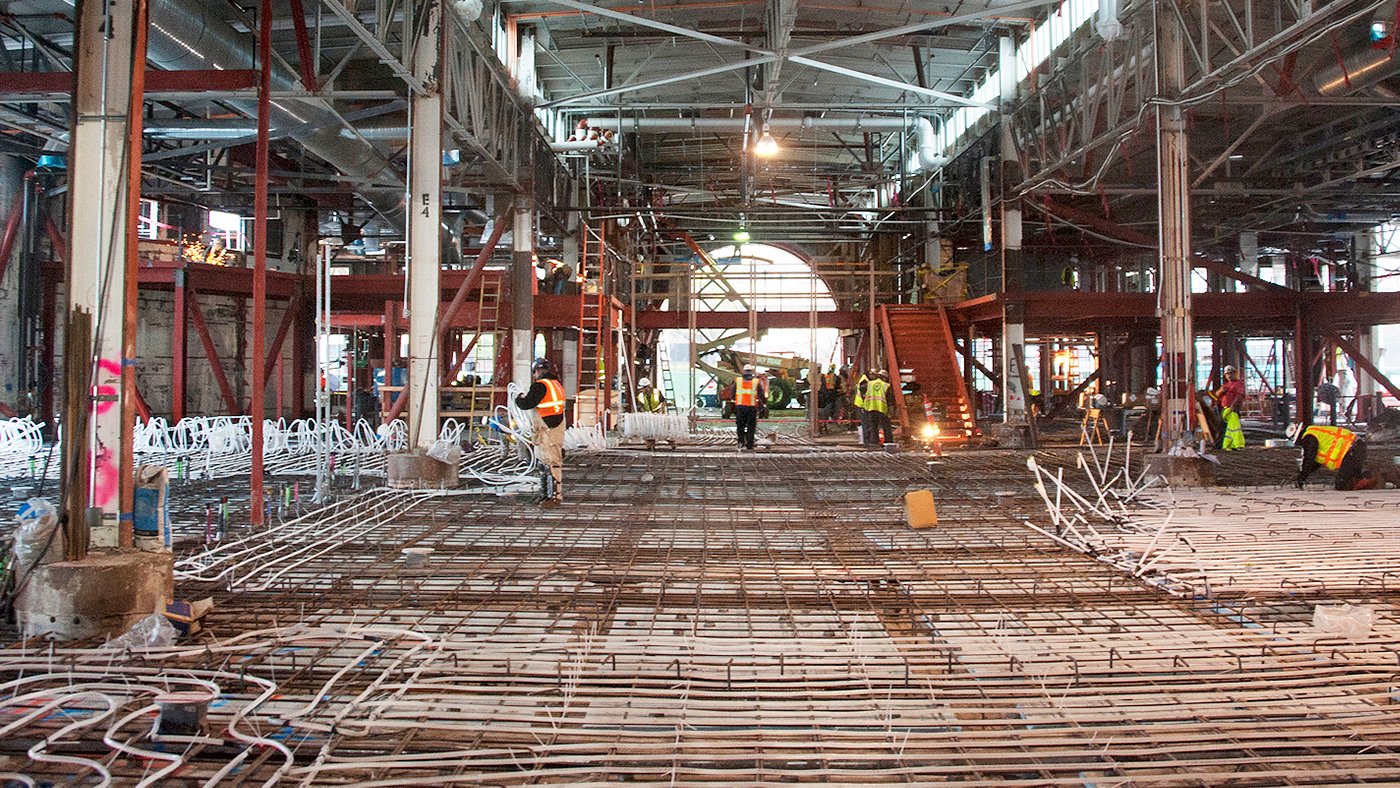
Radiant Cooling and Heating Systems for Large Commercial Buildings
October 29, 2024
CBE’s Paul Raftery and former CBE researcher Fred Bauman led this two-part course that is provided to assist architects and HVAC design engineers in understanding radiant systems with a focus on cooling thermally massive slab systems. The class covered the latest research results, and findings on these types of building designs.
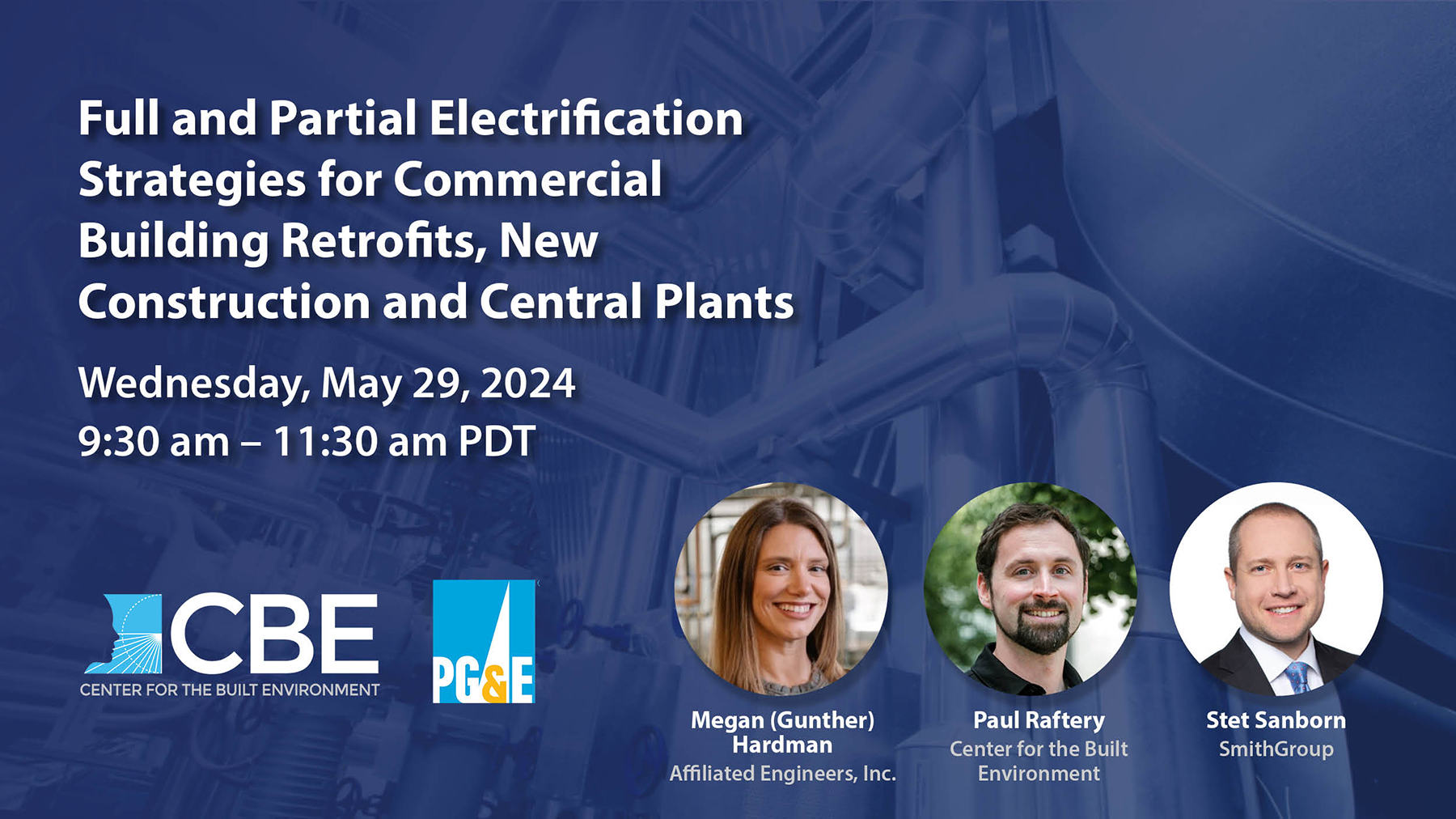
Full and Partial Electrification Strategies for Commercial Building Retrofits, New Construction and Central Plants
May 29, 2024
Building electrification through the use of heat pumps is gaining traction as an effective means to reducing emissions from building operations. However, barriers remain to 100% adoption of this technology, especially in existing buildings where cost, space or other constraints exist, requiring creative approaches to maximize emission reductions per dollar spent. In this webinar, experts from both professional practice and research demonstrated how they are creating deep emission reductions through right-sizing heat pumps, better HVAC design, integration of thermal storage and hybrid solutions. They covered diverse project types including existing buildings, new construction and district plants.
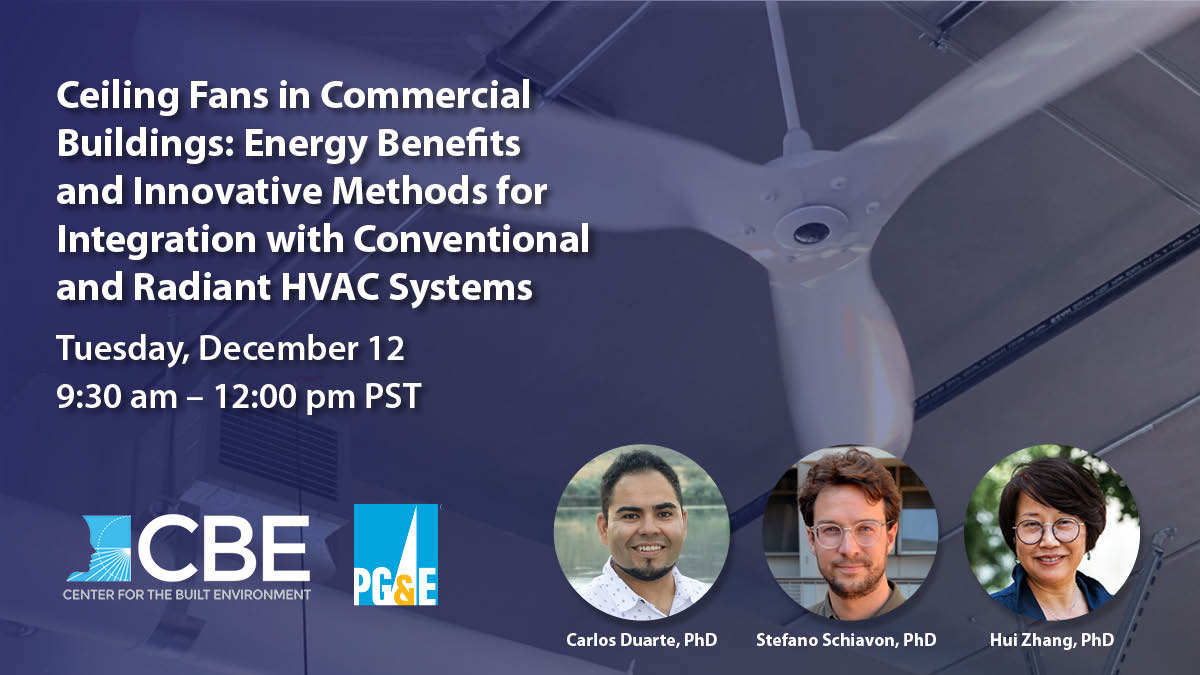
Ceiling Fans in Commercial Buildings: Energy Benefits and Innovative Methods for Integration with Conventional and Radiant HVAC Systems
December 12, 2023
Researchers and faculty at UC Berkeley’s Center for the Built Environment are pursuing wide-ranging research in collaboration with leaders from industry and academia to study technologies and design approaches for decarbonizing buildings while improving indoor environments. This course will feature insights and research findings that hold valuable lessons for commercial building stakeholders, with a focus on benefits and strategies for integrating ceiling fans with HVAC systems, while also sharing newly completed design resources.
